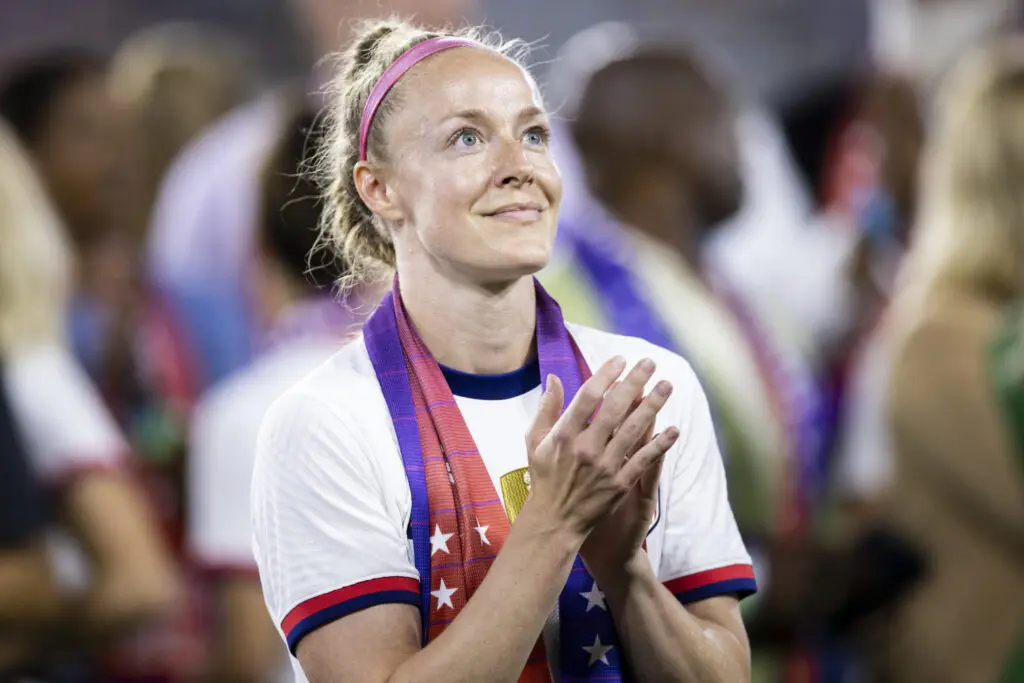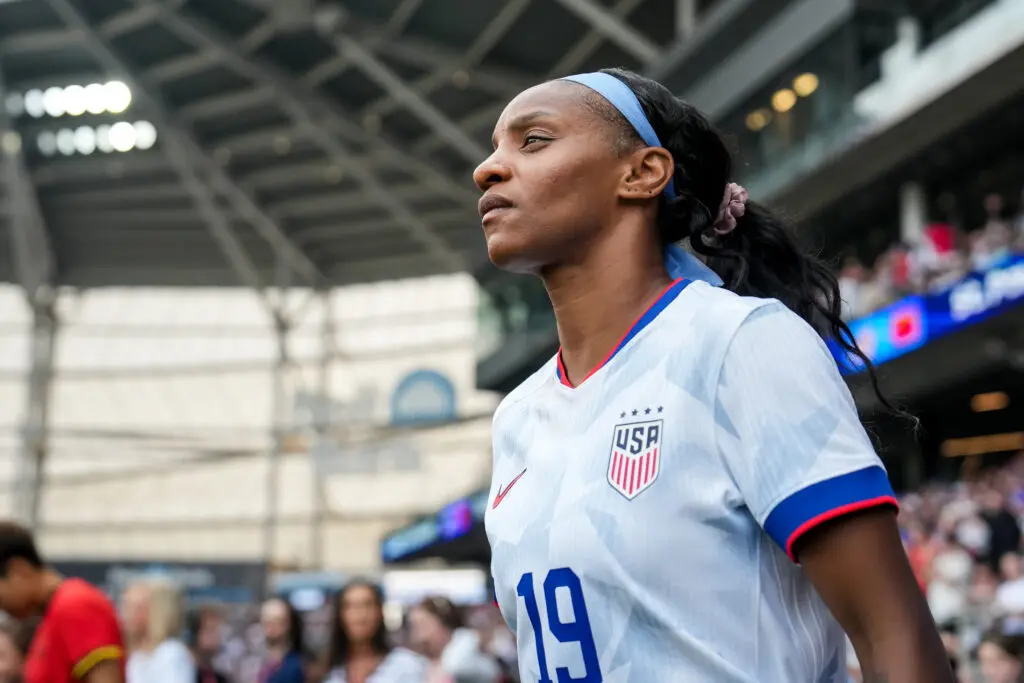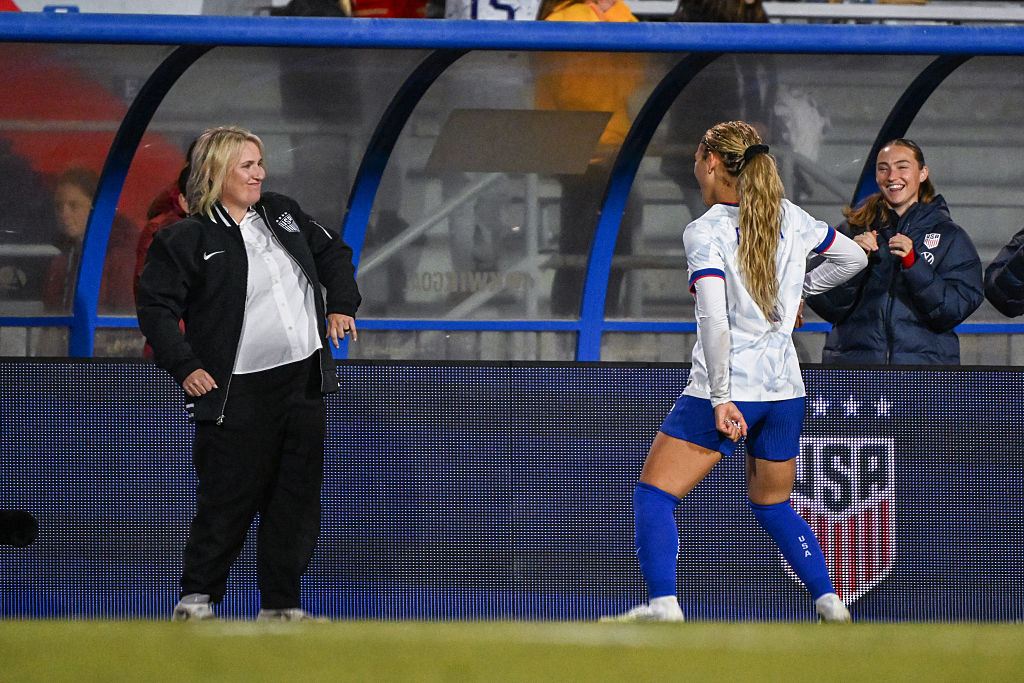The U.S. women’s national team showed support for archrival Canada ahead of their SheBelieves Cup match Thursday, after the players of the Canada women’s national team told the public they will be playing the tournament in protest of their federation.
USWNT players have had their fair share of conflict with their own federation, leading to a landmark equal pay agreement in the team’s most recent collective bargaining agreement. But what Canada is fighting for is greater than just compensation. Canadian players have outlined their concerns about budget cuts to both the senior national team and the youth teams that paint a bleak picture of the sport’s future.
It’s a nuance that isn’t lost on the USWNT, even as they speak up for their club teammates and fierce rivals for country.
“In a way, we did write the playbook a little bit on this, and I think that public pressure that can be put on, the pressure that can be asked of sponsors, I think those are things that we can share with them,” USWNT captain Becky Sauerbrunn told reporters Wednesday in Orlando.
“I don’t know Canada law, so I don’t quite know the distinctions between job action for Canada as compared to the U.S.,” she continued. “So what I feel like is we can support them in how they want and need right now. That might be different from what we needed when we were fighting with our federation for pay equity. We’re just trying to be supportive, and giving them the chance to allow us to support them however they need right now.”
🗣️ The players of the Canadian Women’s National team are demanding immediate change. Treat your world-class players as world class. @PlayersCanadian https://t.co/u0em2AjpBC
— Becky Sauerbrunn (@beckysauerbrunn) February 10, 2023
Canadian players say they have not been paid for their international duties for all of 2022, and they intended to boycott SheBelieves games in an attempt to force Canada Soccer to come back to the bargaining table with a renewed commitment to financial transparency. Their federation said the boycott was in violation of Ontario labour laws, and players felt threatened with litigation should they not participate in the friendly tournament.
With Thursday’s game back on, there’s been communication between both teams on a way to amplify the Canada WNT’s fight to the public.
“A lot of our players know Canadian players on a very personal level, have played with them and against them for so many years,” Alex Morgan told reporters. “We’re definitely in contact with them over the last week or so, and we want to support them in any way possible. Hopefully, there’s a way to show that publicly [Thursday] as well.”
With their own CBA signed and without any formal dispute with an outside federation, the USWNT doesn’t have much jurisdiction to help the Canada WNT outside of resource sharing and signal boosting. But having gone through their own experience with the pressures of speaking out, U.S. players hope to be an outlet that can relieve some of the stress as players also prepare for games.
“We know the burden that is carried through the U.S. players as we went through the lawsuit and the fight with U.S. Soccer, deciding to strike or not, how to protest, when to protest, whether we would get support from the fans and from our country,” Morgan said.
For Canada’s players, the issues at hand need both short and long-term fixes, including financial stability that undermines the team’s fight for equitable treatment as compared to the men’s team.
“I hope it’s a shorter road for them,” Morgan said. “And we’ll do anything possible to try and publicize what they’re fighting for, and why they should achieve that.”
Megan Rapinoe told reporters she wants the U.S. to be an ultimate resource for the Canada WNT in the months to come.
“Whether it’s England winning Euros in the fashion that they did, or the WNBA and their CBA, or the (U.S.) hockey team and our team, the NWSL, Canada now, we’re all on the same team off the field,” Rapinoe said. “It all feels like a snowball effect.”




